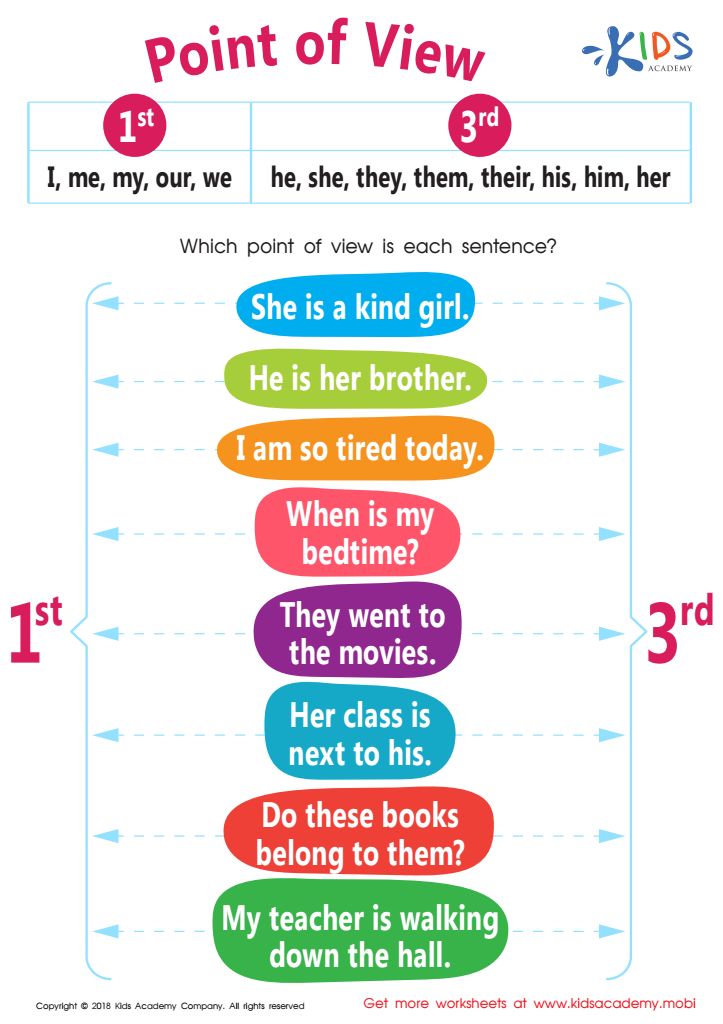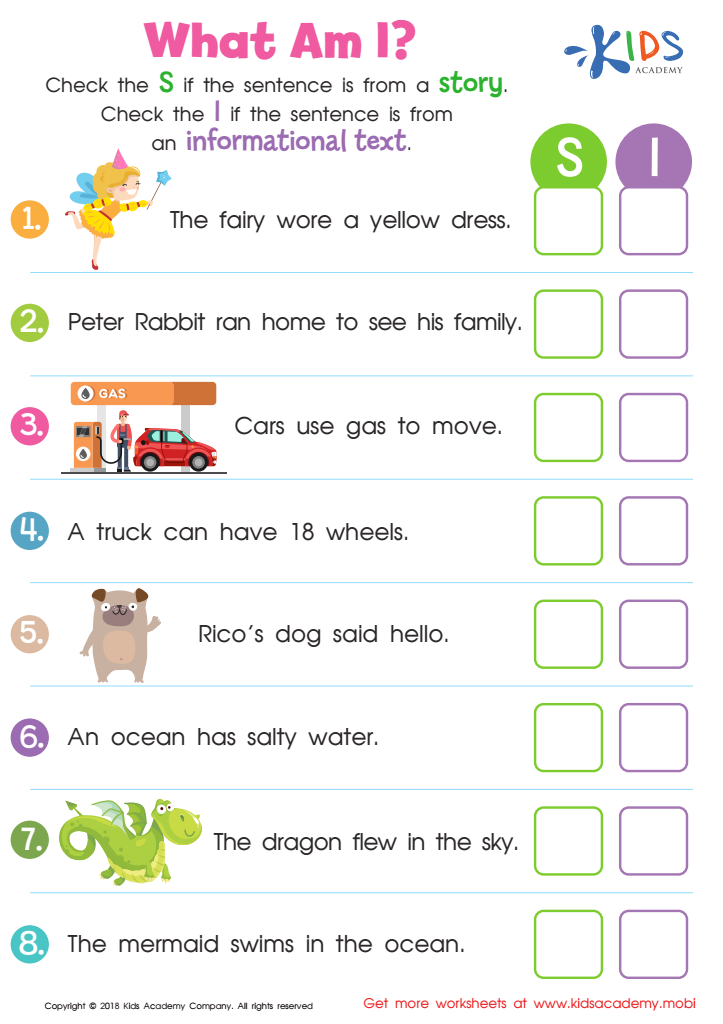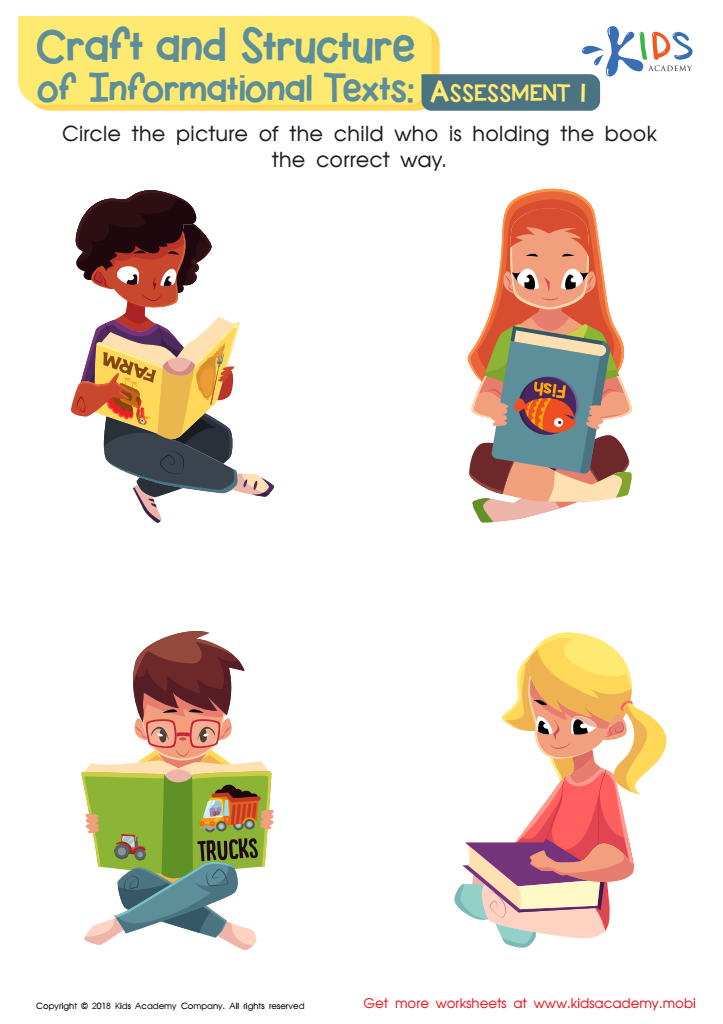Critical Thinking Reading Non-Fiction Worksheets for Ages 3-6
3 filtered results
-
From - To
Enhance your child's critical thinking skills with our engaging non-fiction reading worksheets designed specifically for ages 3-6. These interactive worksheets encourage young learners to explore real-world topics, improve comprehension, and develop analytical skills. Children will engage with age-appropriate text and compelling visuals that promote curiosity and discussion. Each activity is crafted to foster a love for learning while sharpening problem-solving abilities, vocabulary, and understanding of non-fiction content. Our user-friendly worksheets are perfect for home or classroom use. Explore the world of non-fiction and ignite your child's passion for reading and learning today!


Point of View Worksheet


What Am I? Worksheet


Craft and Structure of Informational Texts: Assessment 1 Worksheet
Critical thinking skills are vital for young learners, particularly in the realm of reading non-fiction, where they encounter information about the world. For ages 3-6, engaging with non-fiction texts helps children develop curious minds and enhances their ability to ask questions, make connections, and solve problems. Parents and teachers should embrace this developmental stage, as introducing critical thinking through non-fiction reading hones essential literacy skills, including comprehension and vocabulary.
When young children read non-fiction, they learn to evaluate information, recognize different perspectives, and differentiate between facts and opinions. This foundational understanding fosters a love for inquiry, encouraging them to explore and understand the world around them. Additionally, these early experiences help build their ability to analyze situations and make informed decisions, skills that are crucial as they progress in their education.
Moreover, encouraging critical thinking through non-fiction instills a sense of empathy and social awareness. Children begin to understand diverse cultures, environments, and scientific concepts, nurturing their ability to appreciate different viewpoints and approaches. For parents and teachers, fostering critical thinking in young readers not only enriches their educational experiences but also prepares them to become thoughtful, informed individuals in an increasingly complex world.

 Assign to My Students
Assign to My Students

















